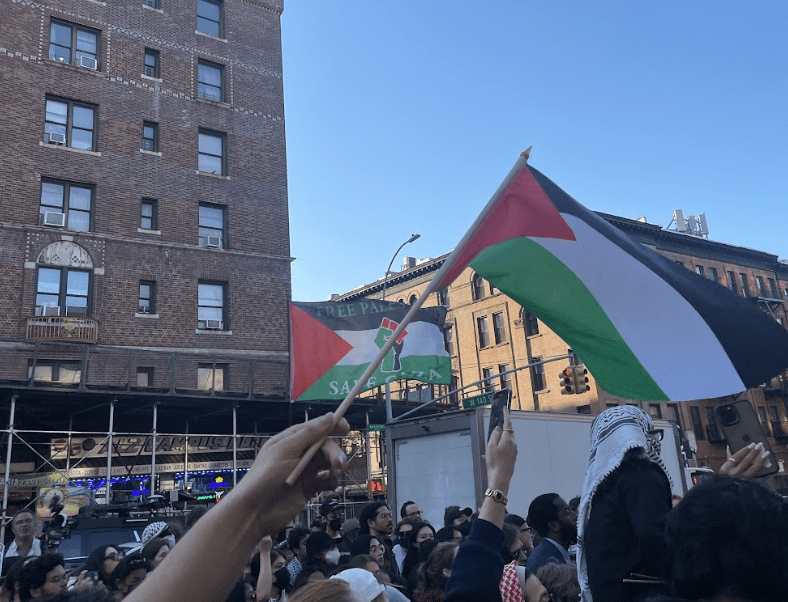
In the last seven months, more than 14,000 children have been indiscriminately murdered in Gaza.
This means that 14,000 children won’t have the chance to grow up. 14,000 children that won’t be able to see their dream careers come true. 14,000 children that won’t have the chance to make it to college.
Yet, these lives are seen as collateral for the defense of a place’s right to exist. Even countries and oceans away, university administrators, including at the City University of New York, don’t feel the need to speak up for these children.
CUNY Chancellor Felix Matos Rodriguez has only said he is “grappling with the attack on Israel” and comments on Hamas, but there is no mention of Gazans and no sense of remorse for Palestinian students on campus who may have lost their entire families.
This is just one of the several ways that university administrations have taken sides in this conflict, alienating so many brown students on campus with little disregard.
Motivated by loss and disgust over the administration’s silence, my fellow students at City College set up an encampment on their campus, utilizing public space and mirroring the 1968 Columbia encampments protesting against the Vietnam War. These protests were not well received, and once Columbia University President Minouche Shafik allowed the NYPD onto her campus, CCNY administrators willingly invited police to “take all necessary law enforcement action” to clear the encampments.
What ensued after was absolute chaos. Over 200 students and faculty were arrested, many violently.
I was sitting at home when my best friend called me crying– she had been maced. The cops had been pushing and yelling at students. She wasn’t sure where our other friend was. She said clearly: “We just want justice for the kids. Why is that so wrong?”
That night, I watched my close friends on social media get maced, tackled, and arrested.
The following day, all entrances but Hunter West were locked. As I scanned my ID, a security guard barked at me: why are you here?
Really? Didn’t CUNY Stop and Frisk on Muslims end in 2015?
Desperately, I wanted to reply: why does a foreign place play a role in how I get to exercise my right to free speech on my campus?
I am not alone in feeling this way. The following week, my friend and I spoke up to Macaulay Honors College Dean Dara Byrne, to ask about why the Macaulay administration had been quiet. Her response: a statement won’t give you the release you are looking for.
I think this is the problem. Words are power, and they have been unequally given to one group and not the other. Why are these statements helpful to Israeli supporters but not to Gazan supporters?
It all boils down to which bodies are valued. Historically, those bodies have never been Black or brown– this conflict reassures me that CUNY ascribes to those opinions.
All in all, I don’t think Muslims, like me, have a place in CUNY. If my university feels afraid to speak up for me, why should I speak up for it?
